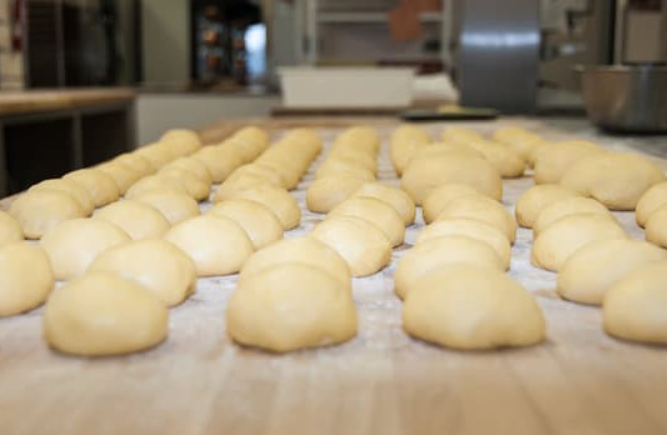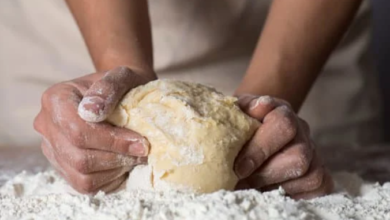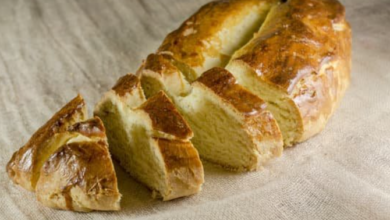Leaving Brioche Dough in the Fridge Overnight: Is It a Smart Idea?

What To Know
- The cold temperature of the refrigerator causes the butter in the dough to solidify, which can make the dough more difficult to work with when it is removed from the fridge.
- Refrigeration can allow for the development of more complex flavors in the dough, as the enzymes in the flour and butter have time to break down and create new flavor compounds.
- Brioche dough can stay in the fridge for up to 12 hours, depending on the temperature of the fridge and the desired level of flavor development.
Brioche dough, with its tantalizing golden crust and fluffy interior, is a culinary masterpiece that evokes a sense of indulgence. However, the question of whether brioche dough can withstand the test of overnight refrigeration has sparked debates among bakers and enthusiasts alike. This blog post aims to unravel the mystery surrounding this culinary conundrum, providing insights and guidance on the proper handling of brioche dough.
The Science Behind Brioche Dough
Brioche dough is a rich and flavorful dough made with a combination of flour, butter, eggs, and yeast. The high butter content and the kneading process create a dough that is both elastic and pliable. The yeast, when activated, produces carbon dioxide gas, which creates the characteristic air pockets in the dough.
Refrigeration’s Impact on Brioche Dough
Refrigerating brioche dough can have a significant impact on its texture and flavor. Here’s what happens when brioche dough is refrigerated:
- Slowed Fermentation: Refrigeration slows down the activity of the yeast, decelerating the fermentation process. This can result in a longer rising time when the dough is brought back to room temperature.
- Firming of the Dough: The cold temperature of the refrigerator causes the butter in the dough to solidify, which can make the dough more difficult to work with when it is removed from the fridge.
- Flavor Development: Refrigeration can allow for the development of more complex flavors in the dough, as the enzymes in the flour and butter have time to break down and create new flavor compounds.
Can You Leave Brioche Dough in the Fridge Overnight?
The answer to the question of whether brioche dough can be left in the fridge overnight is: Yes, but with caveats.
While refrigeration can slow down the fermentation process, it does not stop it entirely. Therefore, leaving brioche dough in the fridge overnight can result in over-fermentation, which can lead to a dense and sour-tasting dough.
Optimal Refrigeration Time
To avoid over-fermentation, it is crucial to limit the refrigeration time for brioche dough. The ideal refrigeration time is between 2 and 12 hours. This allows for some flavor development while preventing the dough from becoming too sour.
Tips for Refrigerating Brioche Dough
1. Punch Down the Dough: Before refrigerating the dough, punch it down to release any excess gas. This will help prevent the dough from rising too much in the fridge.
2. Cover the Dough Tightly: Place the dough in an airtight container or wrap it tightly in plastic wrap to prevent it from drying out.
3. Set a Timer: Set a timer for the desired refrigeration time to avoid over-fermentation.
4. Bring to Room Temperature Before Using: When ready to use, remove the dough from the fridge and allow it to come to room temperature for at least 1 hour before shaping and baking. This will allow the dough to rise properly and develop its full flavor.
Troubleshooting Over-Fermented Brioche Dough
If you accidentally over-fermented your brioche dough, do not despair. Here are a few troubleshooting tips:
- Knead in More Flour: Add small amounts of flour to the dough and knead until it regains its elasticity.
- Proof at a Warmer Temperature: Proof the dough at a warmer temperature, around 80-85°F (27-29°C), to speed up the fermentation process and reduce the sourness.
- Bake Immediately: Bake the over-fermented dough immediately to prevent further fermentation and sourness.
Key Points: Striking the Perfect Balance
The art of working with brioche dough lies in striking the perfect balance between refrigeration and room temperature proofing. By understanding the science behind refrigeration and following the tips outlined in this blog post, you can master the handling of brioche dough and create delectable pastries that will delight your taste buds.
Frequently Asked Questions
1. How long can brioche dough stay in the fridge?
Brioche dough can stay in the fridge for up to 12 hours, depending on the temperature of the fridge and the desired level of flavor development.
2. Can I refrigerate brioche dough after it has risen?
Yes, you can refrigerate brioche dough after it has risen for a short period of time, such as 1-2 hours. This can help slow down the rising process and give you more control over the timing of your baking.
3. How do I know if brioche dough is over-fermented?
Over-fermented brioche dough will have a sour smell and taste, and it may be dense and sticky. The dough may also collapse when baked.



